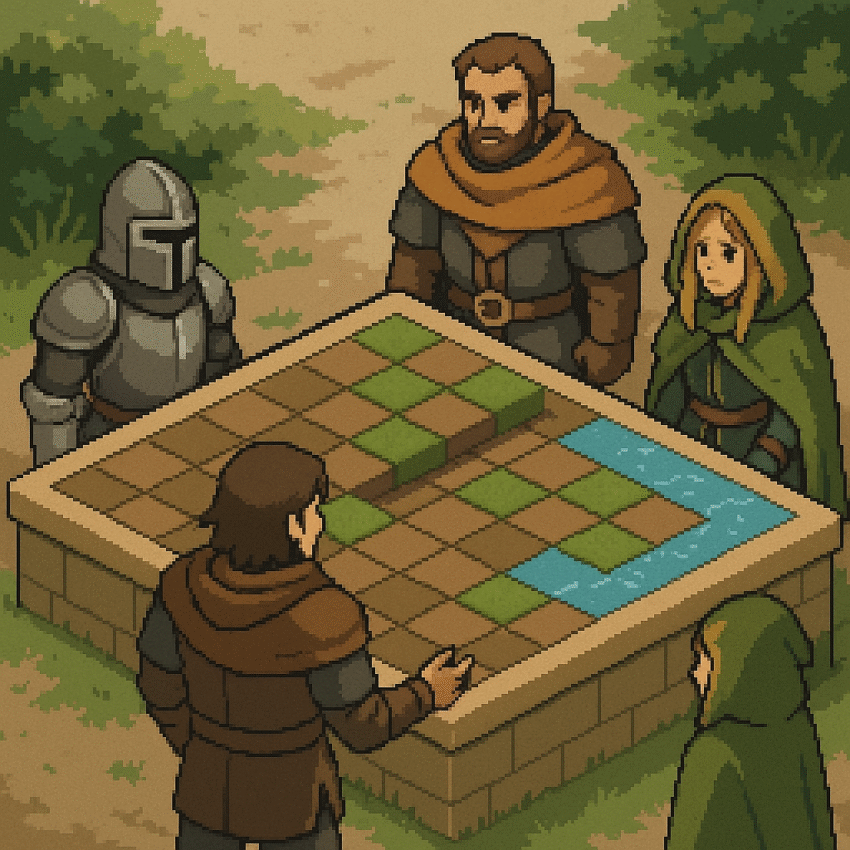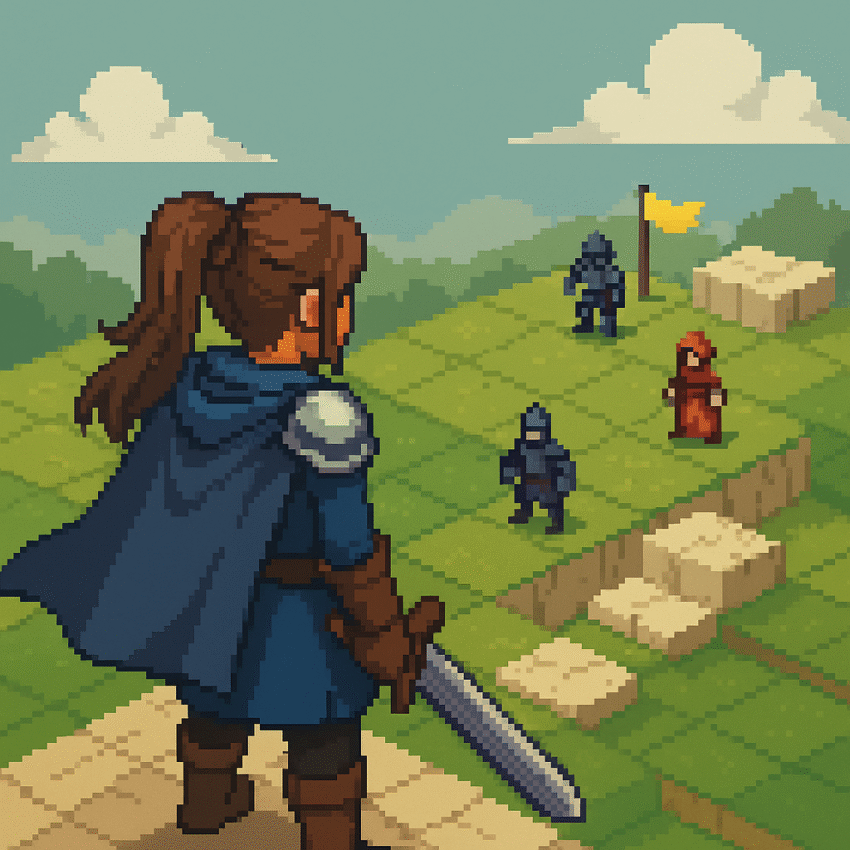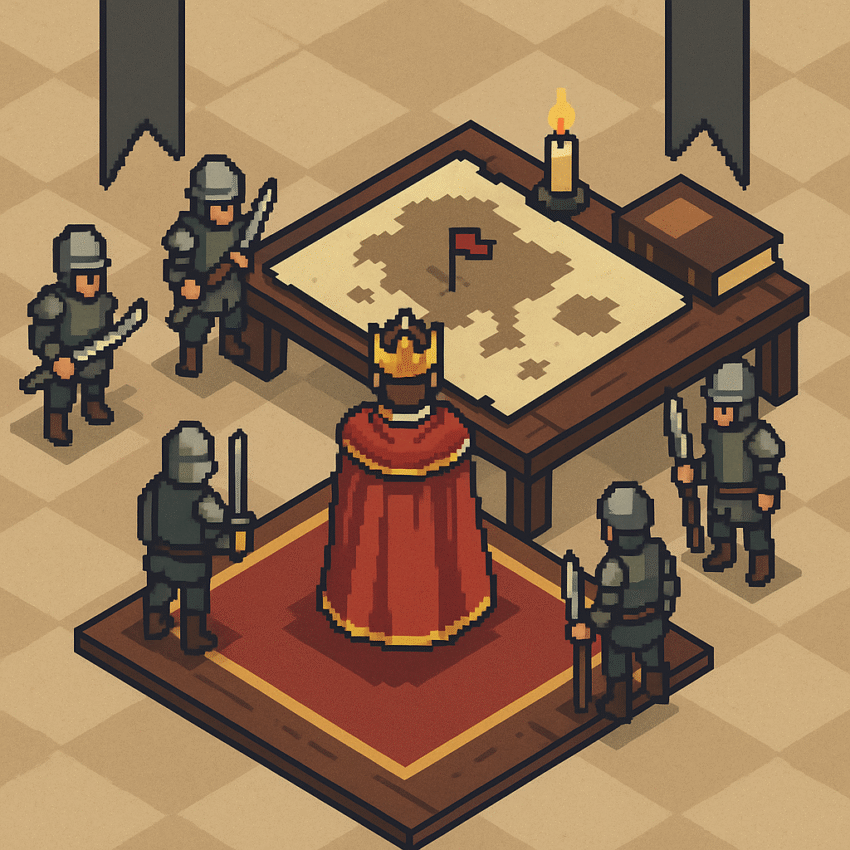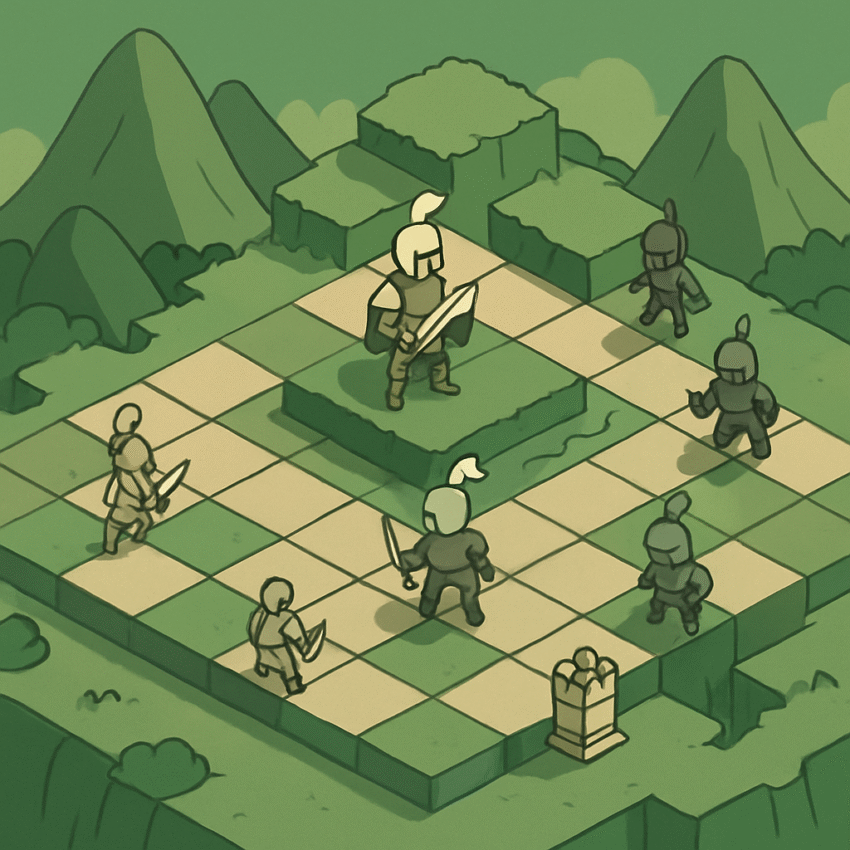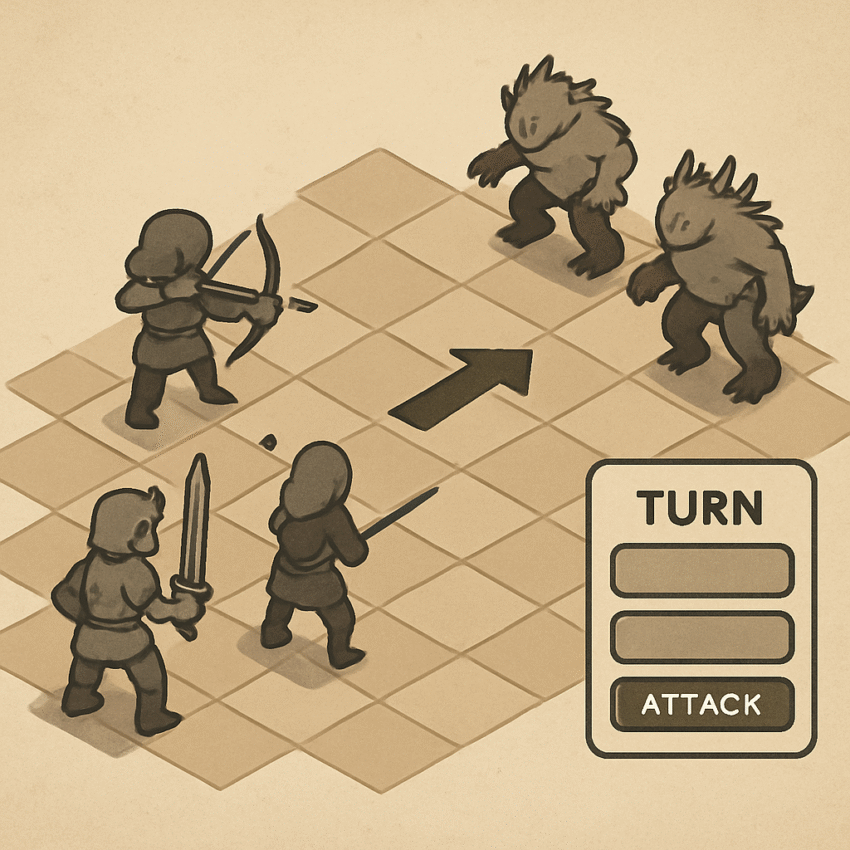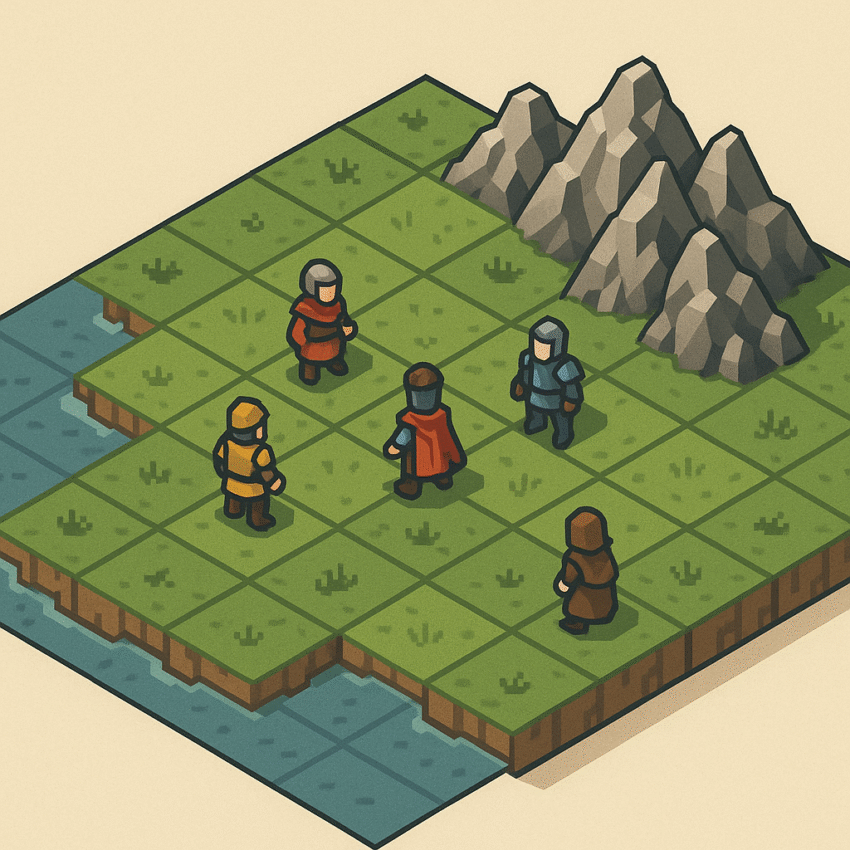What Fire Emblem, XCOM, and Tactics Ogre can teach us about real-world power structures. By Dr. Lilah FaradayGamingGraduate.com Faction design in tactical RPGs is rarely accidental. From color palettes to class availability, from governing ideology to battlefield deployment, how a faction presents itself and functions within a game’s ecosystem is often more than a matter…
Gaming 101
Shared Grids, Shared Grit: Why RPG Inquisitor and Gaming Graduate Are Tactical Allies
Byline: Dr. Lilah Faraday, Editor-at-Arms, Gaming Graduate In the great strategy hall of digital discourse, where mechanics are examined like ancient scrolls and every pixel scrutinized for thematic integrity, a new alliance has been quietly forged—between the fine minds of Gaming Graduate and the equally scholarly tacticians at RPG Inquisitor. And let us be clear:…
Judgment, Justice, and Job Points: A Deep Dive into Fell Seal: Arbiter’s Mark
In the crowded pantheon of tactical role-playing games—where sacred grids, noble sacrifices, and endless job trees tower like altars to strategy—Fell Seal: Arbiter’s Mark carves out a place not through spectacle, but through devotion. Devotion to tradition. Devotion to mechanical coherence. Devotion to systems that make you question not just your strategy, but your sovereignty….
Gamified Governance: Leadership Systems in Tactical RPGs
What Games Teach Us About Politics, Governance, and Command In tactical RPGs, you rarely just play a soldier. You play a commander, a teacher, a lord, or a chosen strategist whose decisions ripple through maps, factions, and empires. Your job isn’t just to win battles—it’s to maintain morale, manage loyalty, redistribute resources, and sometimes rewrite…
Strategy in Silence: Non-Verbal Decision Spaces
Tactics Games That Communicate Strategy Without Overt Exposition Most strategy games rely on language to teach and tell. Tutorials explain mechanics. Characters narrate objectives. Dialogue spells out faction goals, ideological clashes, and battlefield stakes. And yet, some of the most profound tactical experiences emerge not through words, but through design that speaks for itself. In…
Turn-Based Combat and the Aesthetics of Deliberation
In an industry increasingly obsessed with fluidity, spectacle, and instant gratification, turn-based combat stands defiant—unbothered, unhurried, and intellectually poised. It is a genre structure not defined by its lack of urgency, but by its abundance of intent. Turn-based systems grant players more than a pause—they offer a canvas for deliberation. Each turn is a declaration…
The Anti-Hero Tactician: Role Morality in Leadership Mechanics
How Protagonists Are Judged Not by Their Story, But Their Strategies In most strategy and RPG narratives, we’re used to leaders who look the part: noble generals, righteous commanders, or destined champions. Their morality is usually aligned with the story’s tone—good guys versus bad guys, justice versus tyranny. But as game narratives have grown more…
Worldbuilding Through Tactics: How Gameplay Informs Lore
Case Studies Where Mechanical Choices Build Coherent Worlds In strategy and tactical RPGs, players often spend more time navigating maps and managing units than watching cutscenes or reading lore. Yet, some of the most immersive worlds in gaming aren’t built through narrative exposition or cinematic storytelling—they’re revealed through mechanics themselves. This is the essence of…
Auto-Battlers and Tactical Delegation: Losing Control to Gain Strategy
Exploring Why Automation Is Satisfying—or Unsettling There’s a strange tension at the heart of the auto-battler genre. You build your team. You choose your units. You craft your formation. Then… you watch. No commands. No inputs. No clutch last-second plays. Instead, your carefully planned lineup does what it’s been told—flawlessly or catastrophically—and you’re left to…
Precision Reimagined: The RK M3 Gaming Mouse with 42,000 DPI Sensor
High-Performance Engineering Meets Competitive Edge In the world of PC gaming, few tools are more crucial than your mouse. For competitive players, creatives, and even general users, the mouse serves as the interface between thought and action—a precision instrument that must balance speed, control, and comfort. Enter the RK ROYAL KLUDGE RK M3, a gaming…
